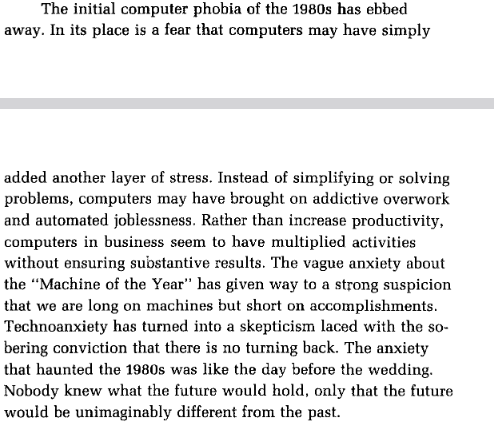Every day, a new invention pops up, changing the world as we know it. Cars, mobile phones, the internet, and social media. All those are results of innovation. We are constantly searching for and inventing machines that make our lives easier. However, every good invention comes with its downside.
Recently, there has been a lot of hype about artificial intelligence (AI) and how it will change how we live. AI is inevitable and it is already here.
In this two-parter article, we will be detailing AI from its explanation to its implementation in Media.
But guess what? This article is not written using AI.
What is AI?
In the broadest terms, Artificial Intelligence (AI) is a simulation of human intelligence processes by machines, especially computer systems that learns how to process massive amounts of data, and patterns to gather information which enables problem-solving, making predictions or classifications based on input data.
AI’s evolution over the years has been quite fascinating. From ChatGPT handling tasks, and writing emails and essays, to recreating scenes in movies and replicating voices, AI has come a long way. Yet, its constant upgrades might not be everyone’s cup of tea.
Take, for instance, ChatGPT, it can edit, proofread, and rewrite the input, only if your prompt is coherent and accurate.
AI in the Court of Public Opinion
Everyone has their opinion regarding the implementation of AI in our lives. So let’s bring some statistics to show people’s reactions to AI.
Be prepared for some numbers…
1st: People’s knowledge of AI
According to Mozilla Fundraising Blog Survey conducted in 2019,
3.8% of people didn’t know what AI was.
9.5% were well-educated on AI.
35.2% didn’t know much about AI.
51.6% had some knowledge of it.
2nd: People’s Feelings about AI
Most of the youth's (19 - 24 years) feelings about AI were positive, as they were curious, hopeful, and excited.
24% believe AI will improve the quality of life.
41% believe AI will both improve and worsen human lives.
10% believe AI will only make life worse.
Experts' and CEOs’ Opinions
The Optimists
IBM’s CEO Arvind Krishna, expects AI to replace about 7,800 jobs in the coming years.
“AI is probably the most important thing humanity has ever worked on. I think of it as something more profound than electricity or fire. Artificial Intelligence will save us, not destroy us,” Sundar Pichai, CEO, of Google, said.
The Pessimists
“I fear that AI may replace humans altogether. If people design computer viruses, someone will design AI that improves and replicates itself. This will be a new form of life that outperforms humans.” Stephen Hawking, Physicist
“Many will not be able to know what is true anymore.”
“I believe that the rapid progress of AI is going to transform society in ways we do not fully understand and not all of the effects are going to be good.”
These quotes by Geoffrey Hinton, the British-Canadian cognitive psychologist, and computer scientist, also known as the Godfather of AI, became more sinister due to his recent quitting Google to speak freely about the dangers of AI.
So what’s next? Is the world going to be dominated by AI? Each decade had its fear regarding technology.
Let’s travel to the 20th century when computers were considered a threat to jobs.
Technology’s Evolution over the Years
In the 1960s, people had mixed feelings when it came to computers. It was regarded as a way to automate things and facilitate the work process. When it came to the world of magazine publications, computers shifted the way advertisers can reach their audiences due to the research done regarding market segmentation, attitudes, and behavior, specifying how to target readers and choosing what magazine to advertise their products best.
Computers also helped magazine printing to be cost-effective, as they facilitated the printing operations and color separation process.
Still, in the 1980s “computerphobia” was on the horizon. As personal computers began entering homes, people became frightened of how to deal with them.
According to the 1996 book Women and Computers, "These can take such forms as fear of physically touching the computer or of damaging it and what's inside it, a reluctance to read or talk about computers, feeling threatened by those who do know something about them, feeling that you can be replaced by a machine, become a slave to it, or feeling aggressive towards computers."
The book, The Metaphysics Of Virtual Reality, cited the January 1983 issue of Time, which covered the general techno-anxiety in the 80s decade. As opposed to its usual cover portrait “Man of the Year,” Time made a portrait of the "Machine of the Year," a desktop computer that was the machine of the decade, if not indeed of the century.
 The Metaphysics Of Virtual Reality by Micheal Heim
The Metaphysics Of Virtual Reality by Micheal Heim
Computerphobia led tons of publications back in the day to combat this fear by showing tutorials on how to use computers. Now, it’s safe to say that computers are inseparable parts of our lives. Thanks to the previous generations embracing technological advancements, they paved the way for us to have an easier way of living.
Moving On
Leaving all that behind and after explaining how each decade had its technological advancement fears, what’s the 21st century’s fear of AI based on, and how to come to terms with it? In the next article, we’ll take a deep dive into AI in Media and how it will change making art.
Stay tuned for more!

Comments
Leave a Comment